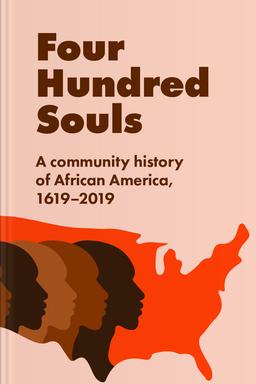What is The Revolutionary about?
This biography delves into the life of one of America's founding fathers, examining Samuel Adams' pivotal role in the American Revolution. Through meticulous research, the narrative paints a vivid portrait of Adams as a revolutionary leader, organizer, and political thinker. The book explores his dedication to liberty, the influence of his political actions, and how he rallied public support, ultimately shaping the course of American history.
Who should read The Revolutionary
- History enthusiasts eager to learn about Revolutionary America.
- Students studying American history or political movements.
- Readers interested in influential figures of the American Revolution.
What is The 1619 Project about?
This transformative work reexamines the legacy of slavery in America, aiming to reshape the narrative of American history by focusing on the contributions and experiences of Black Americans. Through a collection of essays and creative works, it explores the impact of slavery on modern society, challenging readers to confront the realities of systemic racism and envision a more inclusive future informed by the truths of the past.
Who should read The 1619 Project
- History enthusiasts seeking a deeper understanding of American history.
- Students studying social justice and racial issues in America.
- Readers interested in perspectives on slavery's impact on society.
What is Four Hundred Souls about?
This collective narrative spans 400 years of African American history, presenting the experiences of both notable figures and everyday individuals. Structured as a series of essays, it explores themes of resilience, resistance, and community. Contributors from various backgrounds reflect on pivotal moments and movements, revealing the complex tapestry of African American life, culture, and identity while emphasizing the ongoing struggle for justice and equality.
Who should read Four Hundred Souls
- History enthusiasts seeking diverse perspectives
- Students studying African American history
- Readers interested in social justice and equity
What is Guns, Germs, and Steel about?
This acclaimed work explores the factors that shaped the modern world, examining how geographic and environmental variables influenced the development of civilizations. Through a multidisciplinary lens, it addresses the rise of technology, the spread of diseases, and the impact of agriculture. By uncovering the roots of inequality among societies, it challenges traditional narratives about race and culture, offering a profound understanding of human history and its complexities.
Who should read Guns, Germs, and Steel
- History enthusiasts seeking insights into societal development.
- Students studying geography and anthropology in academia.
- Readers interested in the impact of environment on civilizations.
What is Empireland about?
This insightful exploration delves into Britain's imperial past, unraveling how colonialism has influenced contemporary society, politics, and identity. Through a personal lens and extensive research, the author examines the complex legacy of imperialism, addressing issues of race, culture, and national pride. The book challenges readers to confront uncomfortable truths about history and its lingering effects in modern Britain, encouraging a re-evaluation of national narratives.
Who should read Empireland
- History enthusiasts exploring Britain's imperial past.
- Students studying colonialism and its modern implications.
- Readers interested in social justice and anti-colonial narratives.




